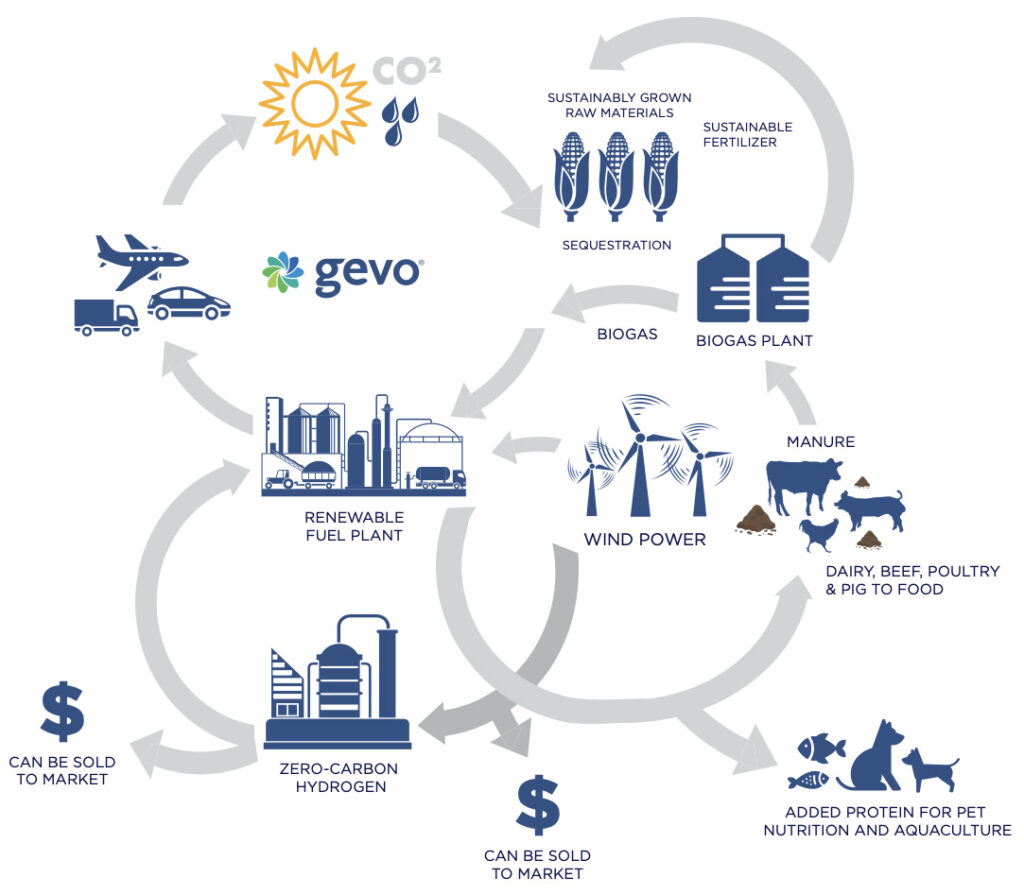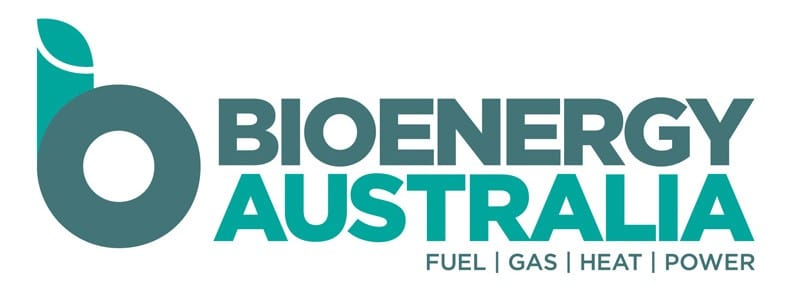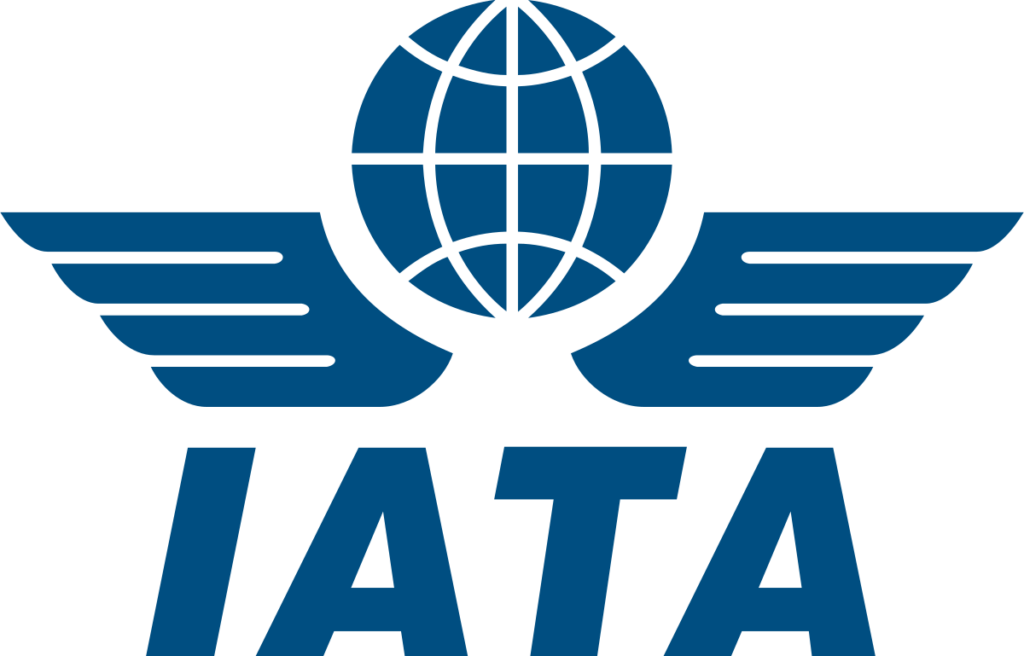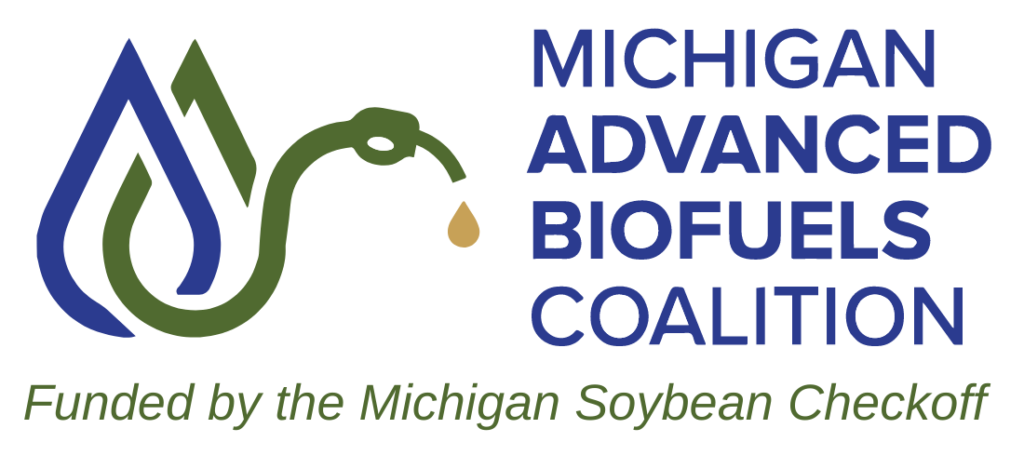Gevo is commercializing the next generation of renewable gasoline, jet fuel, and diesel fuel with the potential to change the energy equation, leveraging the strength of America’s Heartland and powering rural economies through renewable alternatives.
Gevo’s primary market focus, given recent demand and growing customer interest, has been commercializing and scaling our proven alcohol-to-jet (ATJ) pathway to make renewable aviation fuel. We also have commercial opportunities for other renewable hydrocarbon products, such as renewable natural gas (“RNG”), hydrocarbons for gasoline blendstocks and diesel fuel, and plastics, materials, and other chemicals. At the core of Gevo, we are a development and commercialization company. We are engaged in technology, process, and intellectual property development targeted to large-scale deployment of renewable hydrocarbon fuels and chemicals. We are developing the marketplace and customers for our aviation fuel and other related products. We also are engaged as a developer and enabler/licensor for large-scale commercial production, and we expect to be a co-investor on certain projects.



Gevo uses renewable-resource-based carbohydrates as raw materials and is in an advanced state of developing renewable electricity and renewable natural gas for use in production processes, resulting in drop-in fuels that are produced efficiently and meet or exceed all industry standards.
Gevo’s products perform as well or better than traditional fossil-based fuels in infrastructure and engines. In addition to addressing the problems of fuels, Gevo’s technology also enables certain plastics, such as polyester, to be made with more renewable ingredients. Gevo’s ability to penetrate growing areas of the fuels market depends on the price of oil and the value of other attributes of our drop-in fuels.

Gevo believes that its proven, patented technology enabling us to produce price-competitive low carbon products such as gasoline components, jet fuel, and diesel fuel yields the potential to generate project and corporate returns that justify the build-out of a multi-billion dollar business.
Gevo Is Affiliated with Industry Organizations and Associations
To learn how we use distributed ledger technology (DLT) to ensure and encourage sustainability for entire industries visit Verity
The Circular Economy Is the Key to Our Business System
Gevo believes that its proven, patented technology enabling the use of a variety of regeneratively grown feedstocks to produce price-competitive products such as gasoline components, jet fuel, and diesel fuel yields the potential to generate project and corporate returns that justify the build-out of a multi-billion dollar business.

The circular economy is in motion all around us. It adds quality to our lives and contributes to the collective health of our planet by demanding fewer raw materials—increasing efficiency and allowing us to produce more with less. The circular economy increases value by improving efficiencies wherever they are found and finds ways to use resources more effectively. This is the core of the Gevo business system; we make use of and conserve renewable energy, provide food, products, and sustainable fuels, and advance regenerative agriculture.
Carbon is in almost everything. It’s a key building block of life in both plants and animals, and it forms energy-storing bonds in fuels, hydrocarbons that are outstanding energy carriers with excellent energy density.
The energy provided by hydrocarbons is critical to our world; it’s the source of the carbon in the equation where the issue arises. At Gevo we expect to use regeneratively grown feed corn as a feedstock, to produce high-value nutrition products while using the starch to produce fuels. The corn captures carbon through photosynthesis, using the sun’s energy to draw carbon dioxide from the atmosphere in a cycle.
The efforts outlined below each do at least one of the following: reduce waste, improve the soil, or increase efficiency within the greater Circular Economy.
1. Wind turbines are expected to provide emissions-free electricity to power the the ATJ-60 facility under development in Lake Preston, South Dakota, just as they provide energy for our development facility in Luverne, Minnesota.
2. Regenerative farming techniques improve yield for growers producing corn that’s expected to be used as feedstock for our ATJ-60 plant. Tracking our use of natural resources is key, as the corn is expected to deliver all of its energy through the value chain to the end customer.
3. Renewable Natural Gas (RNG) is expected to replace fossil gas and provide renewable thermal energy to our ATJ-60 plant. Our RNG processing facility in Northwest Iowa is already up and running, capturing methane from the manure of 20,000 dairy cows that would otherwise be wasted, and transforming it to a renewable energy source.










